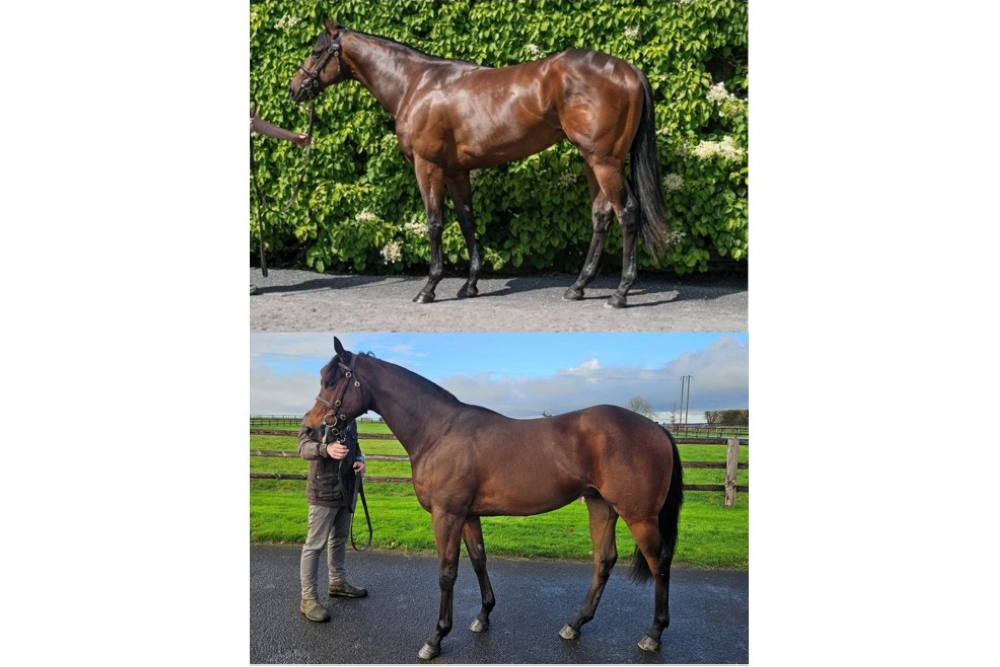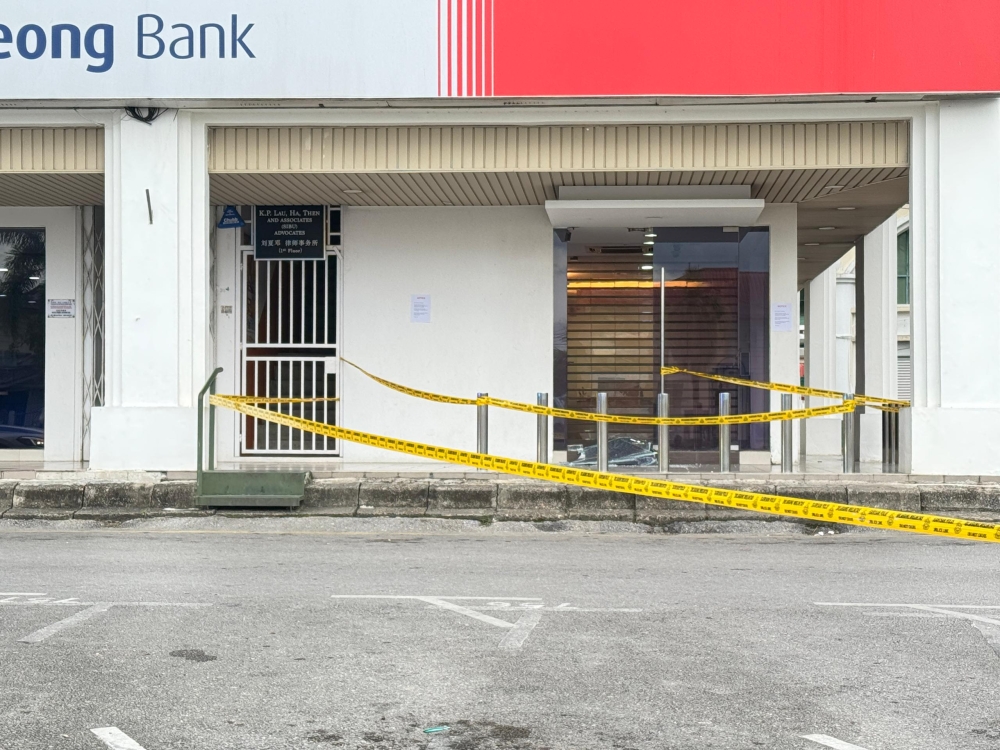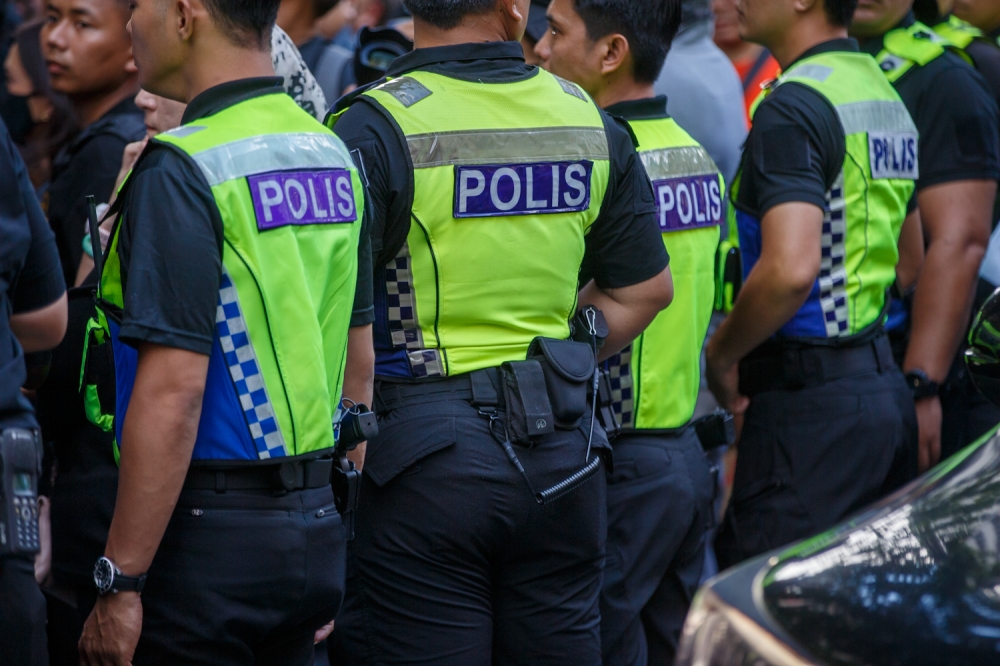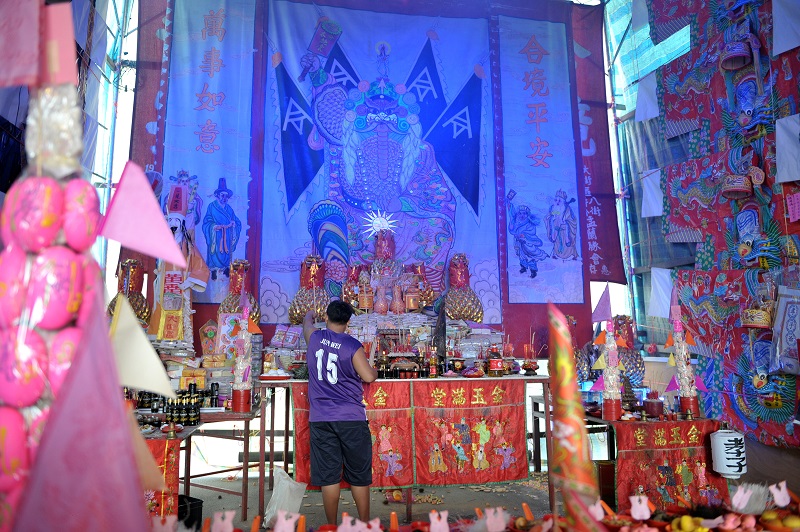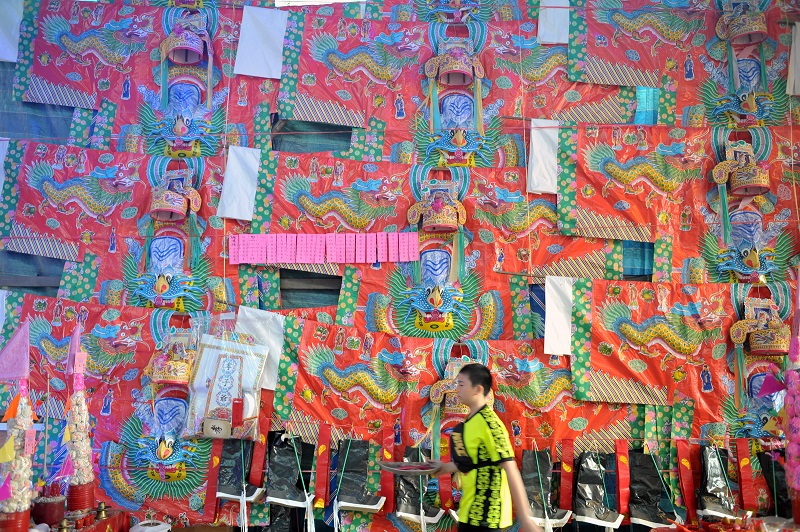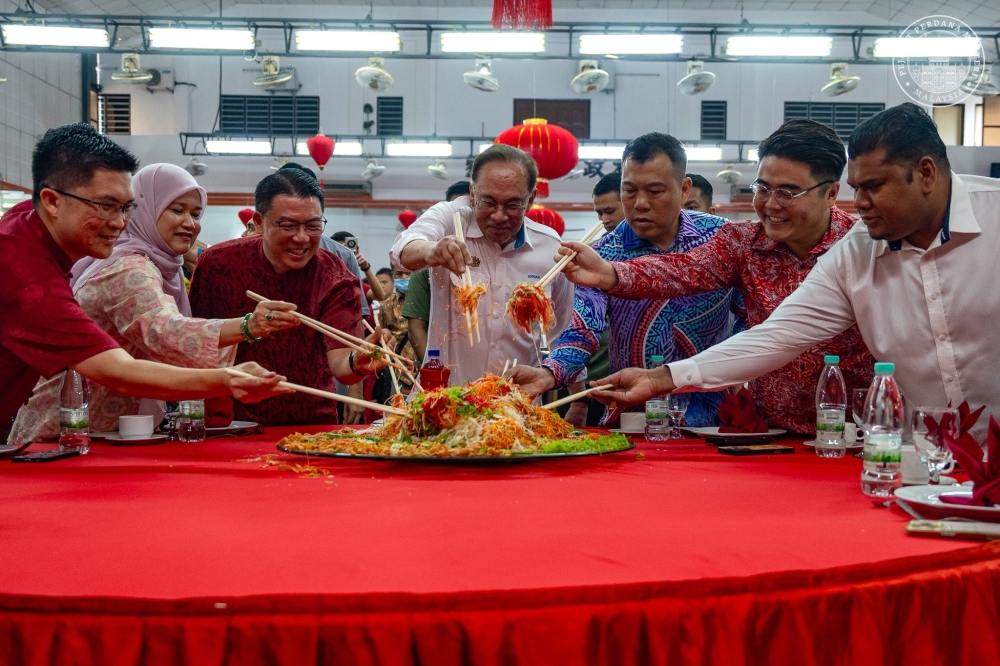GEORGE TOWN, Sept 8 — Every year, during the seventh lunar month, makeshift altars and stages seem to mushroom all over Penang; offerings are burnt by the roadside while “live” concerts and Chinese opera performances are held at various locations every night.
For most Penangites, the annual Hungry Ghost Festival rituals are so normal most don’t even notice them.
“Everyone accepts the loud music from the ko tai (‘live’ concerts) and the burning of candles, joss sticks and other prayer offerings by the roadside,” said Penang Teong Guan Association secretary Ng Kuan Fook.
According to Taoist beliefs, the gates of hell are thrown open during the seventh lunar month of the Chinese calendar and spirits are free to roam the earth.
During this month, altars are set up to offer prayers to the King of Hades, or Tai Su Yeah, and his two generals, Tua Pek and Zhi Pek, to keep these spirits in check.
“We must have altars for Tai Su Yeah since he is in charge of the wandering spirits while his generals help him to keep the spirits in check,” Ng said.
Across from the altar, a stage will be set up for performances to entertain the deities and the wandering spirits.
“The altars and stages will not be there for the whole month. It depends on the tradition practised by the respective Phor Tor committee. Some will be there for only two days, some three to five days and the longest is the one in Bukit Mertajam which is 15 days,” he said.
Keeping with tradition
Traditionally, these altars and stages were set up by the local community and traders as a way to appease the spirits so that the spirits will not disturb or cause them harm.
These communities have since set up respective Phor Tor committees for their areas to organise their own hungry ghost festival for the area. The Penang Teong Guan Association is the umbrella body for all Phor Tor committees.
In George Town, altars and stages are set up at different intervals on different streets, all managed by their respective Phor Tor committees.
Over in Queen Street, the altar was set up for five days from the third day of the seventh lunar month until the ninth day of the lunar month.
Throughout the five-day period, nightly ko tai, which is a modern lively concert by local singers, will be held and devotees will also pray and make offerings to Tai Su Yeah and his generals.
The ko tai was not meant for humans but was mainly to keep the wandering spirits entertained so that they do not cause mischief to the living.
At the end of the five days, there will be a huge almost festival-like gathering where devotees, consisting of traders and residents living in the area, will gather to pray for blessings from Tai Su Yeah and make offerings to wandering spirits.
At the end of the night, usually near midnight, the giant effigy of Tai Su Yeah, Tua Pek, Zhi Pek and all paper items that include the deities’ clothings offered by devotees, folded gold ingots and joss paper are piled up and burnt on the road, in between the altar and the stage.
Ng said this marks the end of the prayer session for that street so after that ceremony, the altar and stage will be dismantled.
He said all the Phor Tor committees have their own schedule as to when to set up the altars and how many days the prayer sessions will last.
“Some will have to ask Tai Su Yeah when they should set up and for how many days but some older committees, especially those that have been around for decades, will keep to the tradition of what they did in previous years,” he said.
“The committees can’t change the dates and duration or reduce it, that’s a big no-no. However, they can increase the number of days,” he said.
Steeped in rituals
During the Hungry Ghost month, there are many rituals that devotees have to observe, not only at the altars but also in general.
At the Tai Su Yeah altar, a dozen bowls of rice along with a dozen cups of tea and a dozen plates of dishes must be offered at the main table.
“If it’s chicken, there must be a dozen plates of chicken. If the table is longer, the number can be tripled to 36 bowls and plates but once you’ve increased it, you can’t reduce it next year, it has to remain the same,” Ng said.
Devotees can also offer colourful paper imperial clothes for Tai Su Yeah or paper black boots for Tua Pek, to the deities. These items will be displayed next to the altar until the last day when they will be burnt together with all the other offerings.
In residential areas where there are fewer Tai Su Yeah altars, it is common to see plates of food such as biscuits, sweets, fruits and sometimes, chicken and pork, being placed by the roadside and in front of houses.
These items will be accompanied by candles, joss sticks and sometimes, piles of joss paper.
These are offerings made to the wandering spirits, again to appease them so that they do not cause any trouble to those living in the houses.
“Some people will also place small red flags in honour of Tai Su Yeah and ask for his blessings too,” Ng said.
Even businesses, from traditional traders to modern shops and restaurants with ethnic Chinese owners, will set up tables filled with food offerings and later burn piles of joss paper to appease the spirits.
While offerings can be made on any day of the seventh lunar month, Ng said most people prefer to make their offerings on the 15th day which is believed to be the day when the spirits are at their most vicious.
“Again, this is dependent on tradition. Traditionally the Cantonese will make their offerings on the 14th while the Hokkiens on the 15th,” he said.
According to association chairman Datuk Heng Yak Hoi, most of the Phor Tor committees will hold their respective prayer sessions from the 15th onwards which falls on September 5 this year.
“Only about 25 per cent of the 280 committees hold their sessions in the first two weeks while the rest will hold their sessions from now until the end of the seventh month,” he said.
Ko Tai, operas and dinners
Traditionally, Chinese operas and occasionally, hand puppets shows, were the main choice of entertainment for the wandering spirits but due to the higher costs these traditional performances command, most Phor Tor committees opt for the cheaper ko tai.
Each Chinese opera troupe costs about RM5,000 to hire while the ko tai is half the cost at about RM2,500, said Heng.
“When we have Tai Su Yeah altars, it is compulsory to have entertainment for the wandering spirits so for committees with limited funds, they usually will opt for ko tai,” he said.
Though these lively concerts will often blare loud music till midnight, Heng said the beauty of Penang is that most people do not complain about the noise or the obstruction caused by the altars and stages.
“People understand that this is culture and that this is only done once a year, not on a daily basis, so we do not have any complaints and have never been told to remove any of our altars or stages,” he said.
In fact, according to Ng, a lot of residents nearby like to watch the free entertainment provided by the ko tai.
“There is only one taboo… do not ever sit on the front row because those seats are reserved for the spirits,” he said.
Usually, after the prayer session by each Phor Tor committee, a dinner event will be held to raise funds.
“The funds will go partly to the committee so that they can continue organising the Phor Tor each year and the rest will go to Chinese schools in Penang,” Heng said.
The committees will sell raffle tickets to the dinner events and also tickets for tables which can cost be from a few hundred to a few thousand ringgit per table.
Hungry Ghost Month ends on September 19 this year.













